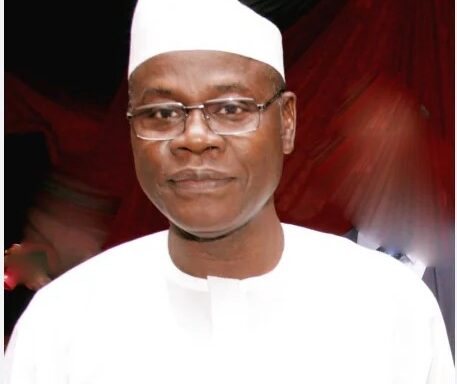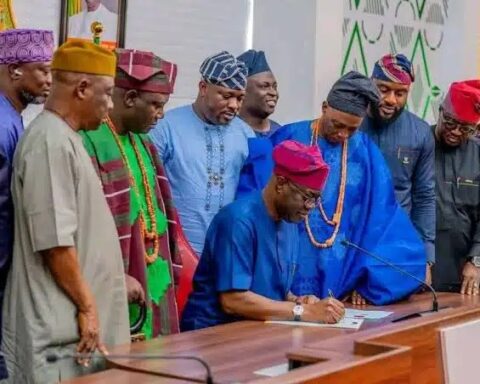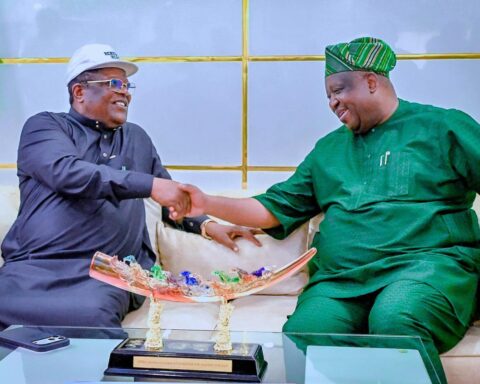By Doris Israel Ijeoma
As Nigeria marked Democracy Day on June 12, former Anambra State Governor and Labour Party’s 2023 presidential candidate, Peter Obi, issued a sharp critique of President Bola Tinubu’s administration, accusing it of eroding democratic values and worsening living conditions across the country.
In a Democracy Day address, Obi declared that Nigeria no longer fits the definition of a democratic state, arguing that the essential democratic principle of government by and for the people has disappeared. He expressed concern over the persistent violations of electoral rules and the emergence of leaders who, according to him, should have been disqualified from contesting.
Reflecting on the current state of Nigeria two years into Tinubu’s administration, Obi described widespread democratic decay, rising insecurity, economic hardship, and growing poverty. He said, “In just two years, we have moved from rigged elections to collapsing social services; from soaring poverty to rising corruption; from a seemingly stable economy to a parlous one. This government has created a situation where failure, lies, and propaganda are now celebrated. Instead of accountability and measurable progress, we are witnessing the manipulation of narratives, blame-shifting, and governance by gaslighting.”
He raised alarm over collapsing sectors like education, healthcare, and poverty reduction, adding that there is no clear method to measure or ensure national progress. He said propaganda, not facts, now defines public discourse. He also criticised the declining rule of law and worsening corruption.
Obi cited economic data, claiming that Nigeria’s GDP has dropped from \$364 billion in May 2023 to \$188 billion—almost a 50% fall. He added that GDP per capita has fallen from \$1,640 to \$835, and that the percentage of Nigerians living in multi-dimensional poverty has increased from 38.9% to 54%, with 129 million people now below the poverty line. He said 75% of rural Nigerians live in poverty.
On education, Obi lamented that Nigeria has over 18.3 million out-of-school children—the highest in the world. He said many students write exams by candlelight, and the education sector continues to decline. In healthcare, he cited figures from the National Primary Health Care Development Agency showing that fewer than 20% of Nigeria’s 30,000 primary health centres are fully functional. In some places, he said, delivery rooms don’t even have toilets. He also cited a UN report ranking Nigeria as the worst country for childbirth, with one maternal death every seven minutes.
On the economy, Obi said over 7 million small businesses have closed in the past two years, along with more than 80 manufacturing firms and 15 multinational companies such as GlaxoSmithKline, Diageo, and Procter & Gamble, who left due to a tough business climate. He criticised the fuel subsidy removal, which he said has not led to visible development, noting that the government has borrowed more than its predecessors, with public debt nearing ₦188 trillion.
He accused the administration of legalising corruption, pointing to an alleged ₦7 trillion padding in the 2025 national budget. He also said the power sector remains unreliable. Instead of improvements, electricity tariffs have risen sharply—from ₦64/kWh in 2022 to ₦225/kWh in 2025—without a stable power supply. “We now have a situation of more tariffs, more darkness,” he said.
Obi reminded Nigerians of Tinubu’s 2022 campaign promise: “If I don’t give you constant electricity in the next four years, don’t vote for me for second term.” He said the country is still facing regular blackouts and grid failures two years into that promise.
He also criticised the government’s unemployment statistics, accusing it of manipulating labour data. He said most young Nigerians are not in education, employment, or training (NEET), and international bodies like the ILO and UNDP have questioned the credibility of Nigeria’s labour figures.
Obi urged President Tinubu to emulate past presidents like Umaru Musa Yar’Adua, who admitted flaws in his election, and Goodluck Jonathan, who conceded defeat for the sake of democracy. He called on Tinubu to respect the rule of law and constitutional checks and balances.
Among his recommendations, Obi called for an end to the President’s frequent foreign trips and suggested visiting all 36 Nigerian states to understand citizens’ struggles. He said this would take just 72 days—less than half of the nearly 150 days Tinubu has already spent abroad. Obi also called for support for internally displaced persons, electoral reforms to restore INEC’s independence, and genuine economic policies that boost productivity rather than increasing taxes on already suffering citizens.
He concluded with a message of hope: “Now is the time to demand accountability, genuine leadership, and a government that prioritises the welfare, security, and democracy of its people over empty rhetoric and propaganda.”
Follow us on all social media platforms @dailyquery for news and analyses around the globe.



























